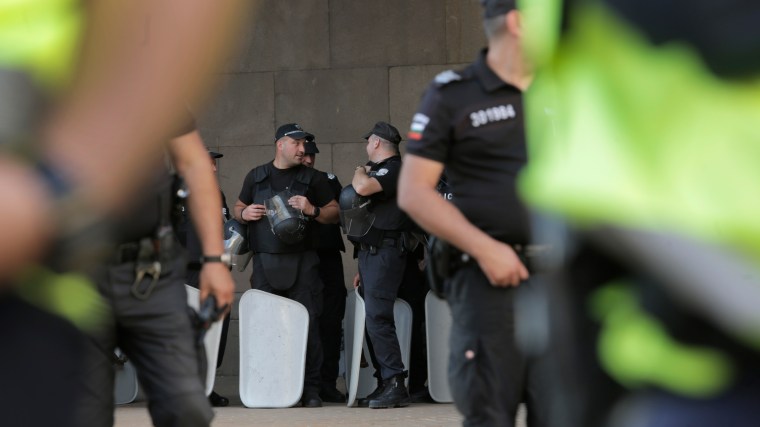Berlin, September 22, 2020 – Bulgarian authorities must make good faith efforts to work with the press, and should refrain from taking actions that could intimidate reporters, the Committee to Protect Journalists said today.
On September 14, police in Sofia, the capital, summoned Martin Georgiev, a crime reporter at the local daily Sega, for questioning after he sent questions to the Ministry of Interior seeking comment on alleged police brutality amid recent protests, according to news reports, a report by his employer, and the journalist, who spoke to CPJ in a phone interview. During anti-government protests on September 2, riot police beat and pepper sprayed demonstrators and reporters, as CPJ documented at the time.
At the police station, officers told Georgiev that they treated his emailed questions as a criminal complaint, and questioned him about the protests and asked him to provide an official statement, according to the journalist and those reports. When Georgiev refused to speak without a lawyer present, the officers released him after about half an hour of questioning, he said.
“Bulgarian authorities must respect journalists’ roles in covering the news, and ensure that reporters can cover protests and allegations of police brutality without harassment,” said Gulnoza Said, CPJ’s Europe and Central Asia program coordinator, in New York. “Authorities should make earnest efforts to respond to questions from reporters like Martin Georgiev, instead of summoning them for official questioning, which can intimidate members of the press and stifle their work.”
In his September 8 emailed request for comment to the press center of the Ministry of Interior, Georgiev sent questions about alleged police brutality, photos from social media and news stories depicting officers’ use of pepper spray and brass knuckles, and questions about the legality of police actions, according to Sega’s report.
“As a crime reporter, I usually send hundreds of questions every year to the police and the Ministry of the Interior,” Georgiev told CPJ. “I see this questioning as a warning that journalists are not supposed to ask certain questions from the police.”
The Association of European Journalists in Bulgaria, an independent trade group, said in a statement that, instead of answering the journalist’s questions, the questioning was “an attempt at intimidation and repression, which probably aims to make the media not interested in such illegal actions of the police.”
After this article was published, the press office of the Bulgarian Ministry of Interior emailed CPJ stating that, because Georgiev’s email featured “data on possible violations,” including photos the journalist had taken from social media, “the request was considered a report received by Sofia Metropolitan Police Directorate.”
[Editors’ note: This article has been changed in its third paragraph to correct the type of statement that Georgiev was asked to give to police, and in its last paragraph to include the response of the Ministry of Interior.]
